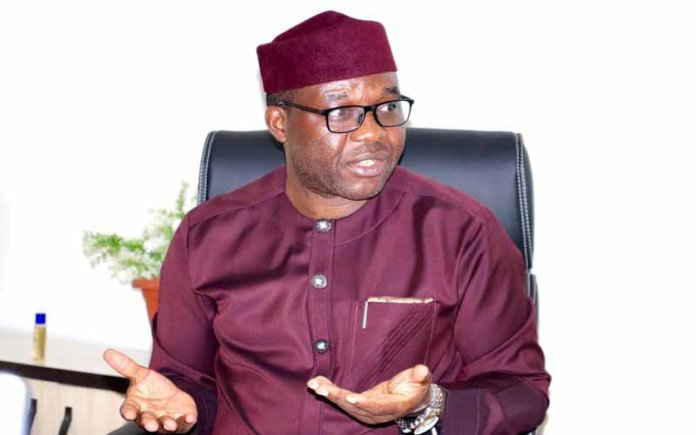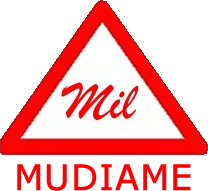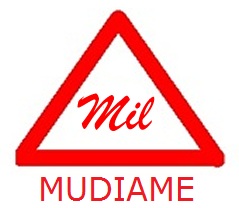
Prof. Sunny Eromosele Eboh is the founder of Mudiame University and Managing Director of Mudiame International Limited. Eboh speaks about the many challenges surrounding quality control and the implications for building and infrastructure collapse in Nigeria
What’s Mudiame International Limited all about?
Mudiame International Limited, is an ISO 17025 accredited Nigerian based testing, calibration and inspection company offering services to the construction, aviation, Oil, Gas and Allied Industries. Our operations are mainly in the area of quality control. We started this about 20 years ago seeing the gap in quality control in the country. Before we started, most of the jobs related to quality control, especially testing, were all done outside the country. Samples for special calibrations and investigation and others were taken out of the country.
So we identified that gap and then we developed a system to close it. With the local content law in place in the oil and gas sector, wielding technology became another big issue that operators had to send samples of wielded coupons out of the country and then have to qualify foreigners to carry out the wielding activities in the country because most of the indigenous wielders were not certified. That is a requirement for quality control, especially for insurance of any investment. Foreign investors quite understand the importance of quality control in the aspect of construction business. So, they ensure that comprehensive quality assurance is done.
But then the delay in sending materials abroad and the waste of foreign exchange were part of the reasons we moved in and bridged the gap. So the oil industry has set a standard in the country that we can follow. It’s not rocket science. It’s not something new, all we need is to comply with best practices.
What is your take on quality assurance in Nigeria?
Obviously, we are far from where we should be. In fact, the failure we are witnessing in infrastructure in the country point to the lack of focus on quality control mechanisms. We’re seeing the collapse of new and existing structures and infrastructures across the country. We are lacking from the point of design to periodic assessment and maintenance. There are no integrity tests on our infrastructure. In the past, there were special body on that to monitor for quality control and integrity.
We don’t seem to have them anymore or they have abandoned their jobs. It was not until recently that Lagos state government got it right by identifying the gap in quality control and the Ministry of Works and Housing went ahead to engage us as a team party to ensure integrity. We had made a presentation to them and they identified the gap. They searched for a third party to help them get it right, because most of their roads were failing within three to six months. Sincerely, designing and building infrastructure is not as difficult as leaving out quality control measures. Designing is not the problem. The actual problem we have is material testing, quality control and monitoring.
We are seeing roads, building and other infrastructure collapse easily in the country. Why is this so, including the recent collapse of a 21-storey building in Lagos?
There are so many factors responsible. The lack of integrity test is one of the major issue. Do we actually have a system? Do we actually drive integrity test in the country? No. This is not only about roads and buildings, as country, our oil and gas infrastructure – pipelines are leaking daily, power infrastructure have issue; this is a general problem that cut across sectors of our economy. We do not conduct integrity test to ascertain their lifetime and if they are viable or demand repair. We usually wait for disasters to strike. This is a major problem and the government must be serious to put a system in place. There is need for a policy that will compel every private and public institution to comply with quality control. The new structures that are failing before they are even completed are evidence of the poor system and failure of even the professional bodies, who should advice the government. A lot of the time we don’t even test materials and soil before construction and sometimes when we do we ignore the actual plan and cut corners. So this is where the failure comes from.
If you want to identify failure, all you need to do is to put quality control in place. The project specifications must be followed. This specification should have clarified material requirements. What happens next is quality control but, sadly, a lot of time the quality aspect is not followed. Because if the materials are not tested, you’re most likely going to have failure. If the specifications are not followed during construction, you’re going to have failure. Monitoring is also a critical part of quality control. If there is strict daily and periodic motoring by an institution, they will be able to detect that certain things are not followed and they will raise alarm. There must be no compromise. There must not be corruption or sentiment. Part of the stories on the collapse building in Lagos was that the building was designed for 15 stories but moved to 21. How did we allow that to happen? Where were the people monitoring that project? From the foundation to the materials and the specifications of the project that was designed, things went wrong.
Some newly constructed roads in the country sometimes fail before the contractors leave site. Does your explanation above also relate to failure of roads network in the country?
Yes. It is still all about the lack of quality control and monitoring. If the rules are designed and strictly followed based on specifications, the materials tested and correction made during project execution, we wont be in this mess. We hardly even conduct road audit. We also do not focus on maintenance. Why do we delight in seeing failing parts of our roads expand. Road should be maintained as soon as failure is noticed. Also, the contractors, especially the multinationals try to comply to their own internal quality control system, while the smaller companies adopt what they want. The multinational, however, cut corners too. It is the role of the government, both at the Federal and State levels to ensure that they create deliberate policies on quality control. Our company is ready to assist in this, just as we are doing for Lagos State Government.
What exactly are you doing for Lagos State Government and what are the implications or economic benefits?
Roads in Lagos don’t last until the new administration came on board. There are seasoned experts in the current cabinet, especially the adviser to the Governor on works and housing, who understands what must be done to address the recurring failure. We were engaged as a third party to ensure that something is done on road failure. When you compare the new roads that are constructed in Lagos with what was in place, you will see the gains of quality control. Quality control is meant to be 5 per cent of the cost of the entire project. If you do this you gain 95 per cent back. What you lost to lack of quality control is not all about what you will spend to get the road done again. When construction is going on in a place, the losses to businesses, environment and vehicles operating in that community, that must shutdown is huge. It creates serious problem for commuters because the road must be shutdown. With quality control, the road will be done once and for all and will save government money, time and create multiplier benefits for the economy.
What is responsible for lack of quality control in Nigeria?
Lack of awareness is one of the reasons. Nigerians, including government and professional bodies, are yet to understand the need for quality control. Where people are aware, it is easy to compromise because there is no enforcement. When political figures are involved in projects, it is easy to shut people up and the Quality Assurance aspect is not considered, because project is just a way of making money. There is also lack of capacity. Contracts don’t sometimes go to people who are qualified. The institutions that are also in charge of enforcing standards, like the Standard Organisation of Nigeria, do not have needed capacity to carry out some tests. They are under-equipped and helpless. Most foreign contractors, who have ISO standard only comply based on their own internal stand. We cannot continue like this.
What are your recommendations to stem these challenges?
There must a deliberate policy or system on quality control. Government at state and federal levels must adopt this and enforce it both in public and private infrastructure. The professional bodies also must wake up. Most importantly, government and private entities building infrastructure must engage a third party on quality control. This is what we are doing for Lagos State. A third party is not likely to compromise when they can be sued and are in business based on integrity. We are concerned about the mess in the system and like we have done in the oil and gas sector, we are willing to contribute our quarter as citizens to address this issue.
The local content board had advocated for the expansion of the scheme in the oil and gas sector to every sector of the economy to build content, monitor and improve in-country capacity. Are you in support of this as solution to the challenges we are facing?
The other day when the Local Content Development and Monitoring Board commissioned an edifice in Bayelsa, I specifically said the building should be the content house for all sectors in Nigeria. In fact, that the building was done by a local contractor tells you the level of success the NCDMB has recorded. If we have tried something and it worked in a sector, we should replicate it. We have made success with local content in the oil and gas sector, thanks to NCDMB and people like Simbi Wabote. As a company, the success we have made today is not without the local content law. Expansion of local content to all sectors will gradually address the failures we are seeing across sectors, build in-country capacity, because the failure of infrastructure is related to lack of capacity. We will also provide more jobs for our contractors and reserve foreign exchange. We are the only people who can solve our problem the most. We need to start building locally made technology and not import every thing.

